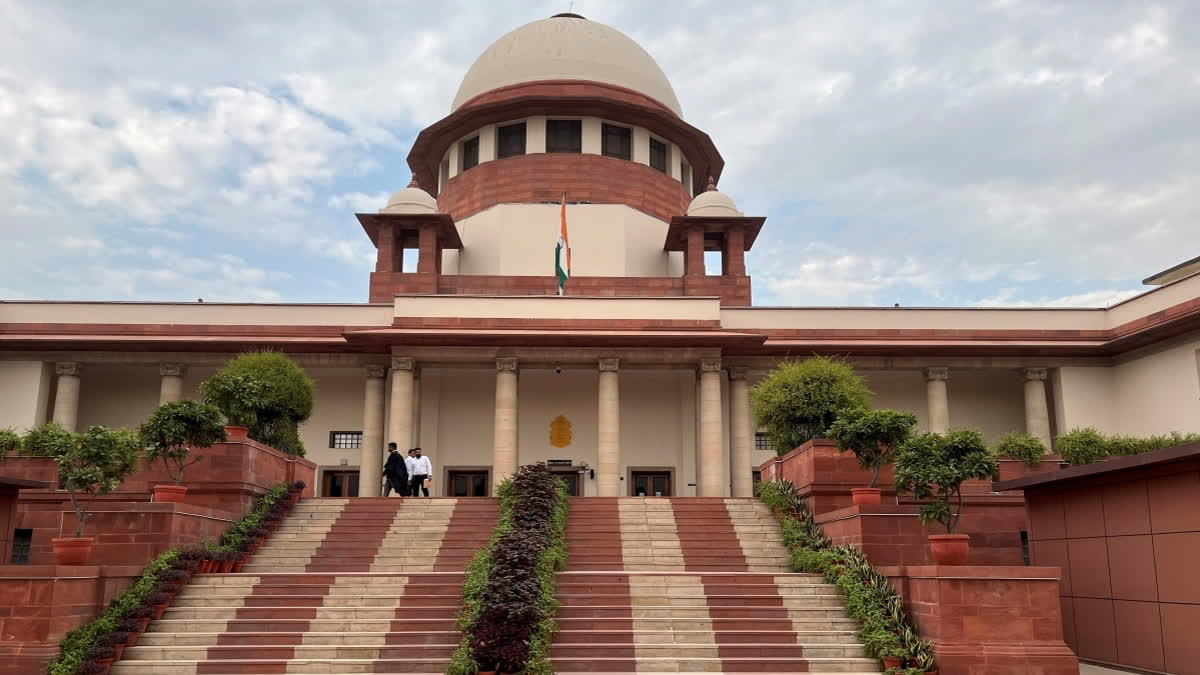New Delhi:A five-judge bench constitution bench of the Supreme Court Wednesday flagged how the ‘selective anonymity’ of the electoral bonds scheme makes it easier for the ruling party to obtain information about the donors to the opposition parties qua law enforcement agencies, and the opposition parties donations get questioned.
The apex court stressed that it is not precluding the government from coming with a transparent scheme or a scheme which has a level playing field for all the political parties.
A bench led by Chief Justice of India D Y Chandrachud and comprising Justices Sanjiv Khanna, B R Gavai, J B Pardiwala, and Manoj Misra, is hearing a clutch of petitions challenging the validity of the Centre's electoral bonds scheme as a source of political funding. Defending the scheme, Solicitor General Tushar Mehta, representing the Centre, said the present scheme is an attempt to ensure clean money comes through banking channels to the political parties and stressed that anonymity is required in political donations to ensure that there is no retribution.
The Chief Justice said the problem with the scheme is that it provides for selective anonymity and it is not completely anonymous, or selective confidentiality. "The State Bank of India is not confidential qua SBI, it is not confidential qua law enforcement agencies. So, a large donor will never take the risk of buying the electoral bonds for the purpose of tendering to the political party. All the large donor has to do is to disaggregate the donation. Give people who will purchase electoral bonds with small amounts which will be purchased through official banking channels and not through cash," said the Chief Justice.
On the aspect of aggregators, Mehta said: "I will have to find ten people (to deposit Rs 1 crore each) who are ready to risk Rs 10 crore". The Chief Justice observed, “A large donor will never put his or her head on the line by being on the books of account of SBI having purchased….the scheme is capable of selective anonymity, selective confidentiality”.
Mehta urged the CJI to allow him to explain the entire scheme. The Chief Justice continued that Mehta’s argument that if court were to strike down the scheme, then we would revert to the prior situation "will not be valid in itself for that reason". “We are not precluding the government from coming with a transparent scheme or a scheme which has a level playing field”, said the Chief Justice.
The Chief Justice said the purpose of ensuring the electoral bonds is that the electoral funding rely less on cash component and more on the accountable component and it is a work in progress, and the court is completely with Mehta on this, as it is a problem that democratic societies are grappling with.
The Chief Justice said the problem with the scheme is: (a) if it doesn’t provide a level playing field to political parties; and (b) it suffers from opacity as the petitioners’ have argued, and maybe the earlier scheme failed as it could not get as much white money into the electoral funding as expected.
Pointing at the safeguards in the earlier scheme of political parties funding, the Chief Justice said a cap on the net profit a company can contribute, a disclosure within a company's own accounts allows shareholders to know that company is funding a political party. “Motive may be perfectly laudable, question is whether you adopted means which are proportional...," the Chief Justice observed.
